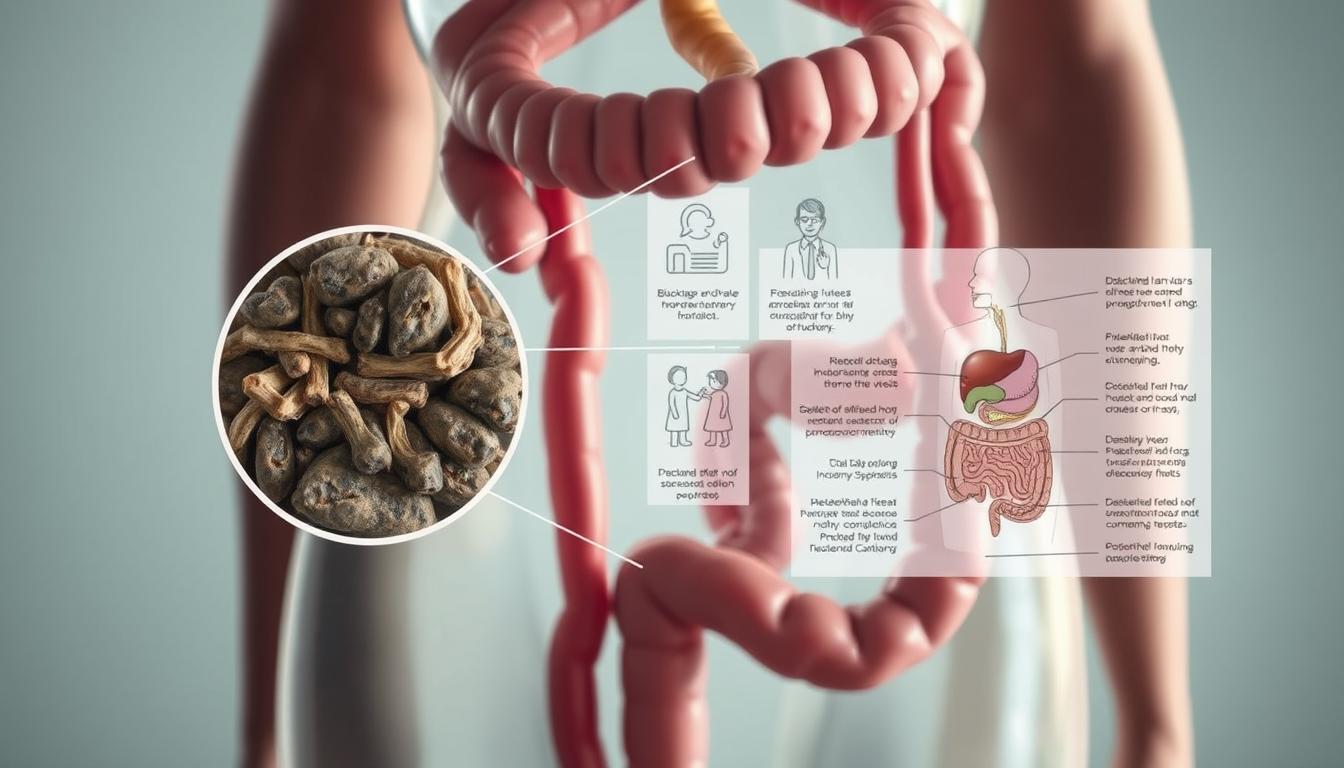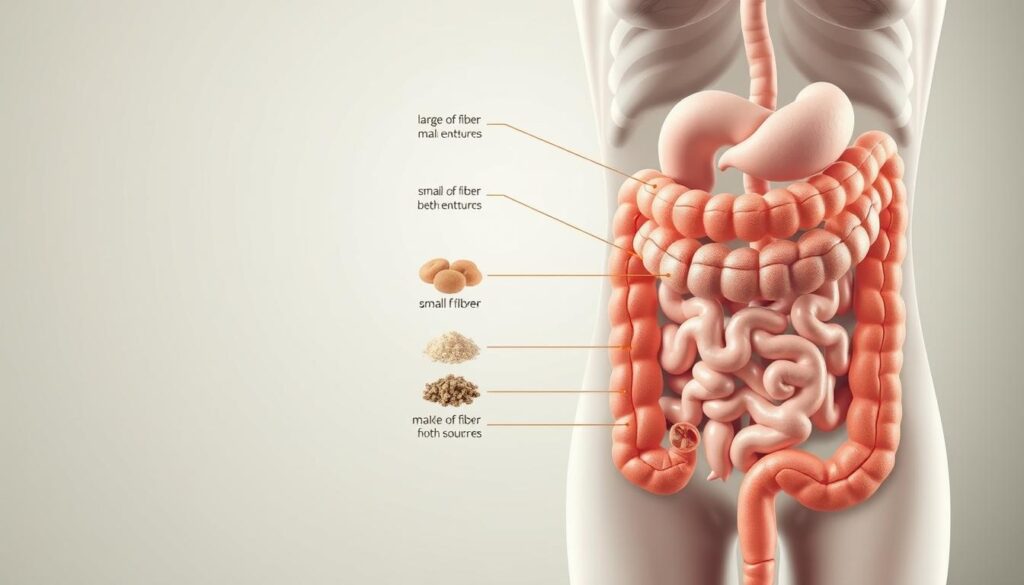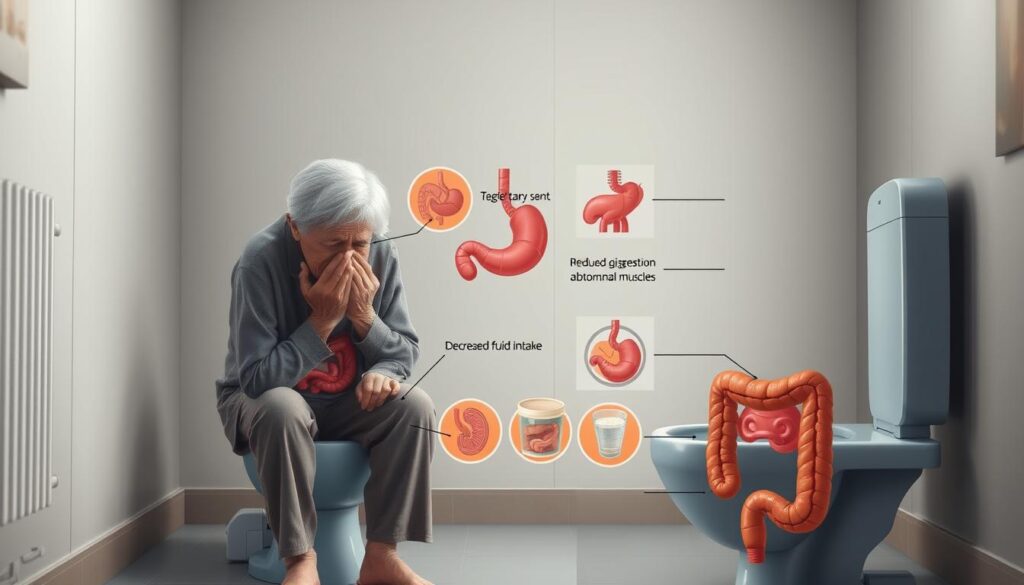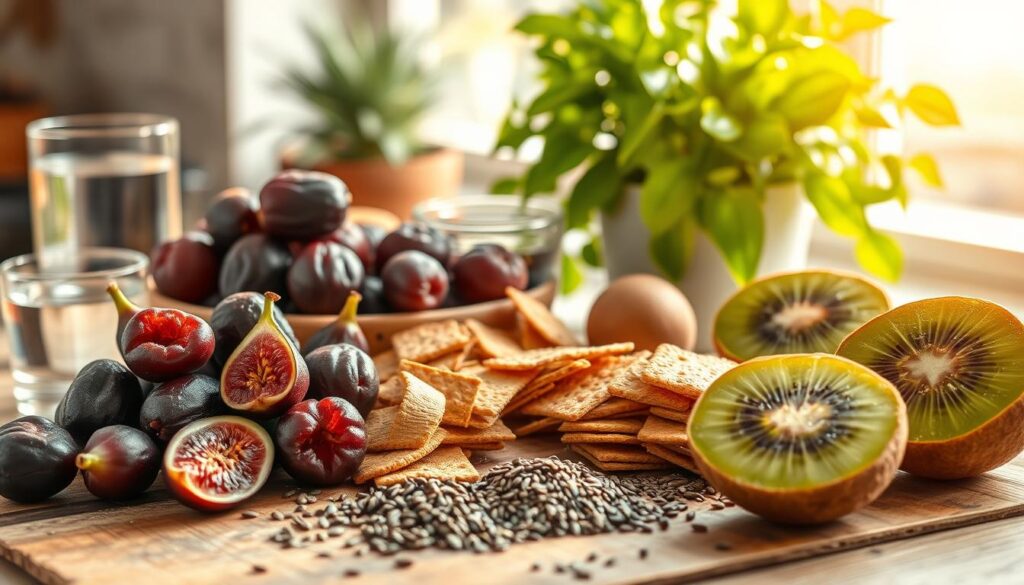Why Do I Have Constipation? Causes and Solutions

You wake up feeling uncomfortable and your stomach is bloated. It’s been days without a good bathroom trip. If this sounds like you, you’re not alone. Millions of Americans face constipation daily, making everyday tasks harder.
When your digestive health is off, everything feels tougher. You might feel slow at work or skip social events. The key is to understand why constipation happens to find solutions.
Constipation isn’t just about not going often. It’s about the discomfort and worry it brings. Sometimes, diet changes, stress, or new routines upset your body’s balance. When you can’t go as often or when it’s hard, your day gets out of sync.
Everyone’s bathroom schedule is different. Some go three times a day, others three times a week. The issue is when your usual pattern changes or going becomes painful. If you have severe pain, see blood in your stool, or haven’t had relief for over three weeks, see a doctor.
Key Takeaways
- Constipation affects millions of Americans and can disrupt your daily life and comfort
- Normal bowel movements range from three times daily to three times weekly
- Changes in diet, routine, or fiber intake often trigger digestive health issues
- Difficulty passing stool is just as important as frequency when identifying constipation
- Seek medical help for severe pain, blood in stool, or symptoms lasting over three weeks
- Understanding your body’s patterns helps you recognize when something isn’t right
Understanding Constipation: What It Is
Constipation affects millions of Americans and can really mess up your day. Knowing about this common problem is the first step to feeling better. When your digestive system slows down, waste moves too slowly through your intestines. This causes uncomfortable symptoms that can make you feel bad overall.
Defining Constipation
You have constipation if you go to the bathroom less than three times a week. This happens when your colon takes too much water from waste. This makes stools hard and dry. Straining and abdominal discomfort often happen when you try to pass these hard stools.
Many things can cause constipation. These include not eating enough fiber, not drinking enough water, and certain habits.

Common Symptoms
Knowing the signs of constipation helps you deal with it sooner. You might notice several signs that mean your digestive system needs help:
- Hard, dry, or lumpy stools
- Straining or pain during bowel movements
- Feeling of incomplete evacuation
- Sensation of blockage in your rectum
- Needing manual assistance to pass stool
- Persistent abdominal discomfort or bloating
Chronic constipation is when you have two or more of these symptoms for three months. This long-term problem often comes from not eating enough fiber. It needs careful attention to your diet and lifestyle.
Common Causes of Constipation
Constipation happens when your digestive system moves too slow. This makes it hard to have regular bowel movements. Knowing what causes it helps you fix it and keep your gut healthy.
Diet and Nutrition Factors
What you eat affects how well you digest food. Eating too little fiber is a big problem. Foods like processed items, too much dairy, and not enough water make it hard to go.
Meat and foods high in fat also slow things down. And sugary snacks don’t help your digestive system at all.

Lack of Physical Activity
Sitting too much can make you constipated. Moving around helps your intestines work better. Even small activities like walking can help your gut stay healthy.
Medication Side Effects
Some medicines can mess with your bowel movements. Opioids, antidepressants, blood pressure meds, and iron pills are common culprits. Even some antihistamines and antacids can slow things down.
| Medication Type | Common Examples | Effect on Digestion |
|---|---|---|
| Pain Relievers | Morphine, Oxycodone | Slows intestinal movement |
| Antidepressants | Amitriptyline, Fluoxetine | Reduces bowel contractions |
| Blood Pressure Drugs | Verapamil, Diltiazem | Decreases gut motility |
Natural remedies can help without the side effects of medicines. They’re great for keeping your digestive system healthy.
How Age Affects Constipation
Your age affects your digestive health. Each stage of life brings its own challenges. Knowing these helps you stay healthy and know when to use laxatives.
Constipation in Children
Children have unique digestive issues. Poor toilet training, fear of public restrooms, or diet changes can cause constipation. They often prefer processed snacks over healthy foods.

Constipation in Adults
Adults face stress, irregular schedules, and bad eating habits. Busy lives lead to skipping meals or eating fast food. Women get constipation more often due to hormones.
Mental health issues like depression can also slow digestion. This makes it hard to have regular bowel movements.
Senior Citizens and Digestive Health
Older adults have slower waste movement due to muscle loss. Many take medicines that affect digestion. Less activity and changes in appetite add to the problem.
Fecal impaction is common and needs medical help if laxatives and diet changes don’t work.
| Age Group | Common Causes | Prevention Tips |
|---|---|---|
| Children (2-12) | Low fiber intake, toilet anxiety | Encourage fruits, establish bathroom routines |
| Adults (18-65) | Stress, poor diet, sedentary lifestyle | Regular exercise, balanced meals |
| Seniors (65+) | Medications, reduced mobility | Stay active, increase water intake |
The Role of Fiber in Digestive Health
Fiber is key in keeping your digestion healthy and preventing constipation. Foods high in fiber help waste move through your intestines better. Knowing about different fibers and how much you need daily can greatly improve your digestion.
Soluble vs. Insoluble Fiber
Your body gets two main types of fiber. Soluble fiber turns into a gel in your intestines. You can find it in oatmeal, beans, and apples. It helps control blood sugar and can help with constipation if you drink enough water.
Insoluble fiber doesn’t mix with water. It makes your stool bulkier, helping food move through your system faster. Good sources include whole wheat bread, wheat bran, and veggies like carrots and green beans. Both types help prevent constipation and keep your bowel movements regular.

Recommended Daily Fiber Intake
It’s important to get enough fiber every day for your digestion. The amount you need changes with age and gender:
| Age Group | Women | Men |
|---|---|---|
| 19-50 years | 25 grams | 38 grams |
| 51+ years | 21 grams | 30 grams |
To reach your fiber goals, eat foods like bran cereals, Brussels sprouts, raspberries, and kidney beans. Start adding more fiber slowly and drink plenty of water to avoid making constipation worse.
Hydration: Its Impact on Constipation
Water is key for digestive health and regular bowel movements. Your colon absorbs water from waste. If you don’t drink enough, your stool gets hard and hard to pass.
Drinking water keeps your stool soft. This helps it move smoothly through your digestive system.
Importance of Water
Your body needs water to work right, and your digestive system is no exception. Drinking water helps your intestines work well. When you’re dehydrated, your body takes water from your colon, causing constipation.
Try to drink at least 8 glasses of water a day. This helps with healthy bowel movements.
Other Hydrating Beverages
While water is best, other drinks can also help. Here are some good choices:
| Beverage | Hydration Benefits | Additional Digestive Benefits |
|---|---|---|
| Herbal Tea | Caffeine-free hydration | Peppermint and ginger teas soothe digestion |
| Coconut Water | Natural electrolytes | Contains potassium for muscle function |
| Clear Broths | Warm liquid aids absorption | Provides minerals and nutrients |
| Fresh Fruit Juice | High water content | Prune juice helps with constipation |
Lifestyle Changes to Alleviate Constipation
Making simple lifestyle changes can greatly improve your digestive health. It can also reduce belly pain. By adding physical activity and daily routines, your body can move waste better. These steps, along with enough fiber, help manage constipation well.
Incorporating Regular Exercise
Exercise gets your intestines moving and helps digestion. Aim for 150 minutes of moderate exercise weekly. That’s just 30 minutes a day, five days a week. Even short bursts of activity can help.
- Brisk walking around your neighborhood
- Gardening or yard work
- Cleaning your house
- Taking the stairs instead of elevators
- Dancing to your favorite music
These activities help food and waste move better. This reduces belly pain.
Establishing a Routine
Your body likes routine. A regular bathroom schedule trains your digestive system. Try to go at the same time each day, 20-30 minutes after meals.
Never ignore the urge to go. Take your time without rushing. This patience, with enough fiber, prevents constipation.
Natural Remedies for Constipation Relief
Many people try natural remedies before using medicines for constipation. These gentle methods help keep your gut healthy and regular. By changing your diet and using herbal solutions, you can avoid harsh chemicals and side effects.
Herbal Solutions
Many herbs can help with constipation. Senna tea is a gentle stimulant that helps bowel movements in 6-12 hours. Psyllium husk, found in health stores, makes stool bulkier and easier to pass. Ginger tea soothes your stomach and boosts digestive enzymes.
Dietary Adjustments
Changing your diet can greatly improve digestion. Start by adding these fiber-rich foods to your meals:
| Food Category | Best Options | Daily Serving |
|---|---|---|
| Whole Grains | Oatmeal, brown rice, quinoa | 3-4 servings |
| Fruits | Apples with peel, pears, berries | 2-3 servings |
| Vegetables | Broccoli, spinach, sweet potatoes | 4-5 servings |
| Legumes | Black beans, lentils, chickpeas | 1-2 servings |
Drink more water when eating more fiber to avoid bloating. Prunes and prune juice are quick fixes. Adding ground flaxseed to your smoothie gives omega-3s and fiber for gut health.
When to Seek Medical Advice
Most constipation cases get better with simple diet and habit changes. But, sometimes you need a doctor’s help. Knowing when to see a doctor can stop problems and get you the right treatment.
Signs You Should Consult a Doctor
Your body sends signals when constipation needs a doctor’s check. Call your doctor if you have:
- Constipation for more than three weeks, even with diet changes
- Severe stomach pain that makes it hard to do daily things
- Blood in your stool or on toilet paper
- Black, tarry stools, which mean possible bleeding inside
- Stool that looks different in shape, size, or color
- Unexplained weight loss with constipation
- Stomach pain that doesn’t go away
Possible Diagnostic Tests
Your doctor will pick tests based on your symptoms and health history. Tests might include:
| Test Type | Purpose | What to Expect |
|---|---|---|
| Blood Tests | Check thyroid function and electrolyte levels | Simple blood draw at lab |
| Colonoscopy | Examine colon for blockages or abnormalities | Outpatient procedure with sedation |
| X-ray | View stool buildup in intestines | Quick, painless imaging |
| Transit Study | Measure how food moves through digestive system | Swallow markers and track movement |
Seeing a doctor early can find and treat health issues. Your doctor can give treatments beyond laxatives. They’ll also suggest diet changes for lasting relief.
Preventive Measures for Constipation
Stopping constipation is simpler than fixing it. Simple habits and smart food choices help keep your bowels regular. Small changes can greatly improve your digestion.
Daily Habits to Promote Regularity
Your daily habits are key to avoiding constipation. Listen to your body when it tells you to go. Ignoring these signs can make stools harder and harder to pass.
Exercise regularly to keep your digestive system active. Try to exercise for at least 30 minutes a day. This can be walking, swimming, or yoga. Also, drink lots of water to keep stools soft.
Importance of a Balanced Diet
Your diet affects your bowel movements. Eat foods high in fiber:
- Fresh fruits like apples, pears, and berries
- Vegetables such as broccoli, spinach, and carrots
- Whole grains including oatmeal, brown rice, and whole wheat bread
- Legumes like black beans, lentils, and chickpeas
Reduce processed foods, too much dairy, and red meat. These slow digestion. More fiber and water together prevent constipation best.
Conclusion: Managing and Preventing Constipation
Understanding constipation helps you take care of your health. Knowing the signs and causes lets you keep your bowels regular. This avoids the pain that constipation brings.
Constipation can cause big problems like hemorrhoids and rectal prolapse if not treated. It’s important to act fast.
Recap of Key Points
Your diet is key to avoiding constipation. Eating fiber-rich foods and drinking water is essential. Being active also helps your intestines work better.
Regular exercise keeps your bowels moving smoothly. Staying consistent with bathroom habits helps too. If these steps don’t work, there are natural and medical options to try.
Encouragement for a Healthier Lifestyle
Small changes can greatly improve your health. Try adding more veggies or drinking more water. These simple steps can make a big difference.
Make sure to see your doctor regularly. Talk about any bowel issues you have. Your body will thank you, and you’ll feel better.
